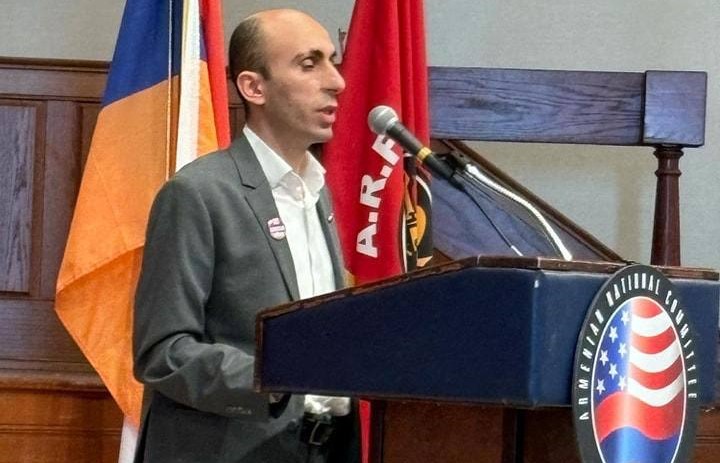Artak Beglaryan Outlines Seven Strategic Goals for Artsakh at Yale University and Armenian Communities in Connecticut and Illinois
- (0)

Artak Beglaryan, President of the Union of Artsakh, delivered a series of speeches from April 25 to 27 at Yale University, the Connecticut House of Representatives, and the Armenian community center in Illinois, addressing the ongoing humanitarian crisis in Artsakh (Nagorno-Karabakh), the consequences of Azerbaijani policies, and the strategic objectives for the future.
At two separate events at the prestigious Yale University, Beglaryan reflected on recent developments, emphasizing the methods and systematic patterns of Azerbaijan’s genocidal policy against the people of Artsakh.
During the second Yale event, Beglaryan, together with Garnik Kerkonian, an international lawyer and advocate for Armenian causes, discussed the right of the Artsakh people to return to their homeland, the legal foundations for this right, and the potential mechanisms and conditions for its implementation.
Citing international precedents for the return of forcibly displaced populations, Beglaryan stressed that with sufficient political will from global powers, the collective return of the Artsakh people could be realized. However, he noted that achieving this goal would require strong, responsible, and proactive engagement from Armenia’s state institutions.
He emphasized that in the current difficult situation, the primary strategic priority for the Armenian nation must be the construction of a strong, developed, and nationally responsible Republic of Armenia. This vision is inseparably linked to the future of Artsakh: ensuring a safe, dignified, stable, and self-determined life through collective repatriation.
In his speeches, Beglaryan outlined seven key strategic goals for Artsakh, necessary for realizing this vision. He presented them using the acronym PERSIST:
- Preserve the people of Artsakh in Armenia by ensuring stable, dignified living conditions and the preservation of their identity.
- Ensure the protection of Artsakh’s physical environment—its cultural heritage, public, and private property—which Azerbaijan is actively destroying and appropriating.
- Record all crimes and reinforce the rights of the Artsakh people through every possible international legal avenue.
- Secure international recognition and condemnation of the genocide against the Artsakh people as a continuation of the Armenian Genocide.
- Initiate and achieve international justice by holding perpetrators accountable and preventing future crimes against Armenians and other minorities.
- Stop the state-sponsored policy of Armenophobia in Azerbaijan, which serves as the ideological basis for crimes committed against Armenians.
- Take action to liberate Armenian prisoners who continue to suffer severe hardships and sham trials in Azerbaijan solely due to their ethnic identity.
In his closing remarks, Beglaryan urged attendees to commit to a consistent, long-term struggle for universal values and for the survival of the Armenian people.



















